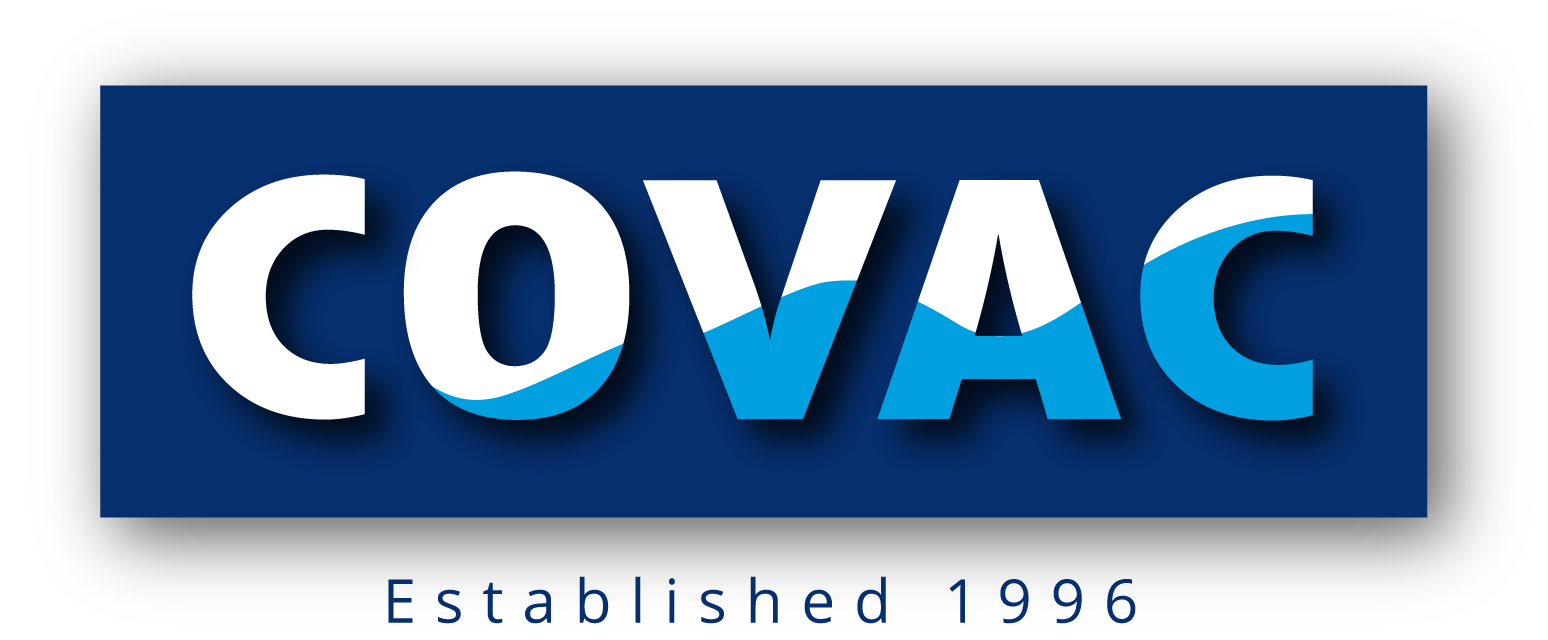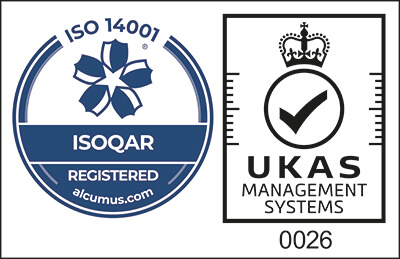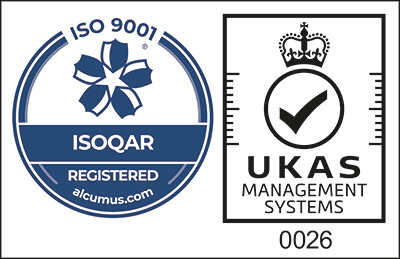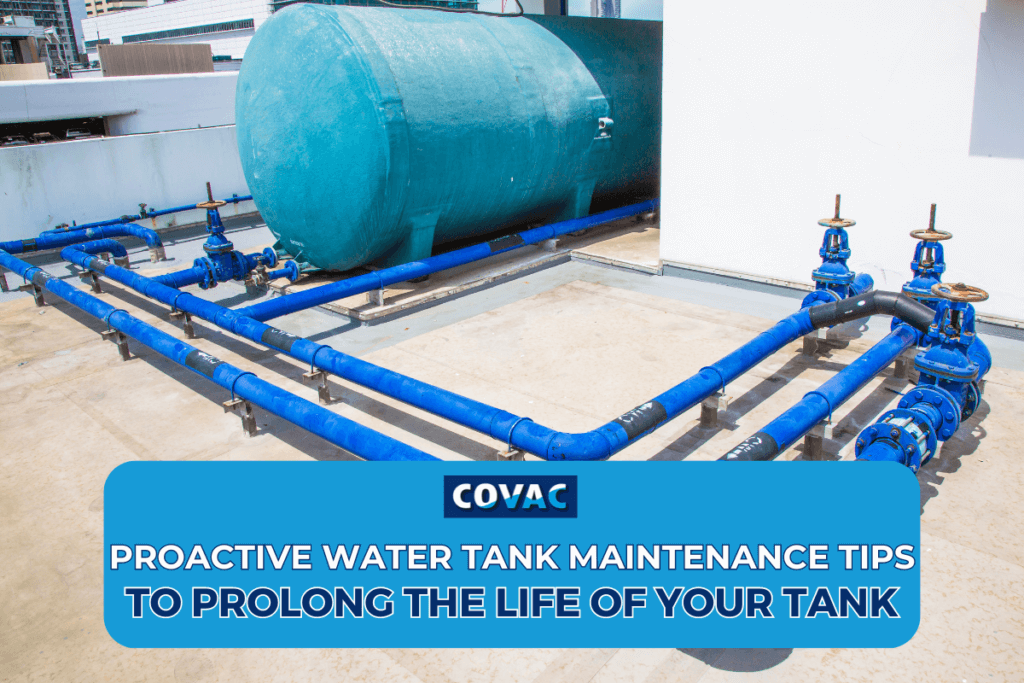
Water tanks are the silent guardians of our water supply. They perform an incredibly important role for many industries. Yet, all too often, we neglect our water tanks until an issue arises, jeopardising both the quality of our water and the longevity of our tanks.
Adopting a proactive approach to water tank maintenance is not only a responsible choice but a crucial one in safeguarding our water security and infrastructure. In this article, we delve into essential proactive maintenance tips that will not only prolong the life of your water tank but also ensure a consistent and reliable water supply for years to come.
Table of Contents:
- Maintenance Tips To Prolong The Life Of Your Tank
- Perform Regular Inspection Practices
- What Should I Do If I Find Damage?
- Keep Your Water Tank Clean
- Why Do I Need To Clean My Water Tank?
- How Do I Clean My Water Tank?
- How Often Should I Clean My Water Tank?
- Water Testing
- Test The Waters
- How Do I Check My Water Quality?
- How Often Should I Check The Water Quality?
- What Can I Do To Keep The Water Quality High?
- Protection Against Corrosion
- Paint Your Metal Tank
- Control the Temperature
- Professional Maintenance Services With COVAC
Maintenance Tips To Prolong The Life Of Your Tank
Perform Regular Inspection Practices
There are visual checks that you can make on your water tank. This includes checking your tank for damage. The damage may include rust or cracks on your tank. Another sign is leakage. You may see this through damp spots or stains. Or you may hear a dripping noise first.
You should also check the valves and fittings on your water tank. You are checking for normal function. Signs of rust and corrosion should be reported.
What Should I Do If I Find Damage?
If you find either damage, or a leak from your water tank, it is important not to panic.
The first thing to do is to give us a call here at COVAC. We will strive to help our customers the same day you get in touch.
If you require a quote, fill out our form. We simply ask for some contact information, your tank measurements, information on the condition of your tank, and a photograph to show the issue.
We offer several repair services. These options are more cost effective than if you required a full tank replacement.
Keep Your Water Tank Clean
Why Do I Need To Clean My Water Tank?
When it comes to water tank maintenance, cleaning is imperative for longevity, efficiency and cost effectiveness. It can also prevent a build up of waterborne bacteria.
Without cleaning your tank effectively, waterborne diseases can cause illness.
One of the main diseases you are at risk of is Legionnaires’ disease. This is a potentially fatal type of pneumonia. It comes from inhaling airborne water droplets containing the bacteria.
How Do I Clean My Water Tank?
There are several ways that you can keep your water tank clean and working efficiently.
Firstly, you should empty your tank. This removes any debris and sediment that can build up over time at the bottom.
Afterwards, using hot water and detergent, scrub the inside of your tank. You can use a stiff brush or if you have one, a high pressure jet or hose. Leave the detergent and water for a couple of hours before emptying and rinsing your water tank.
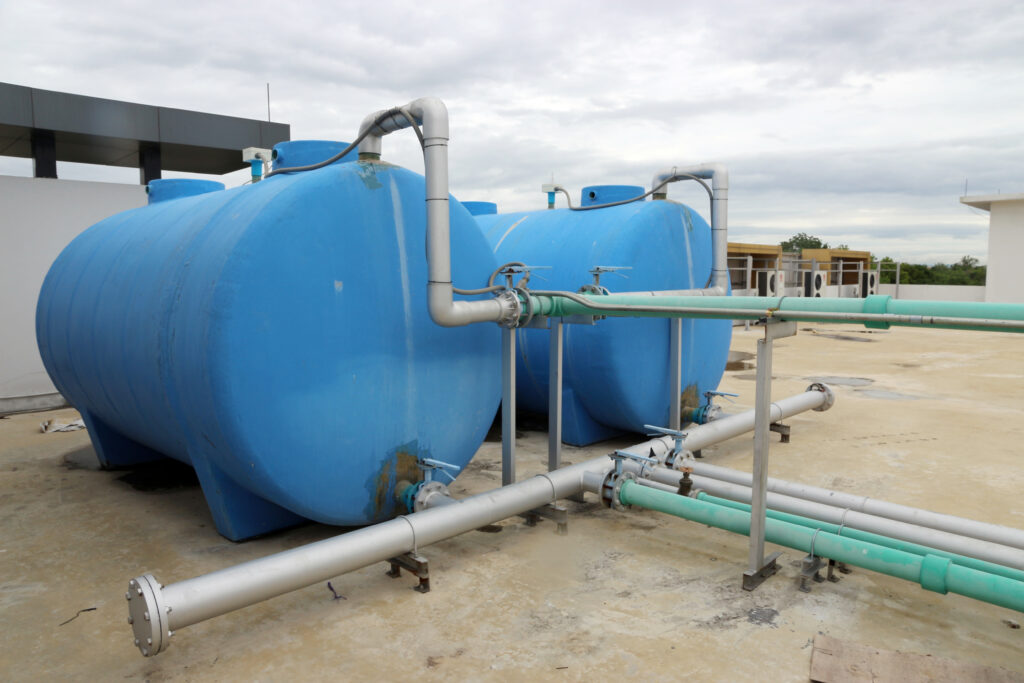
How Often Should I Clean My Water Tank?
We recommend that you clean your water tank at least once a year.
The end of the summer is the best time to clean your tank. This is for two main reasons. Direct sunlight increases the growth of algae and many types of bacteria, so your water will likely be in a poor condition. It is also when your tank is most likely to be at its emptiest, so it will be easier for you to clean, and reduces wasted water.
Water Testing
Test The Waters
Checking the water quality within your water tank is important because it helps to determine if your water quality is compliant with water quality standards.
How Do I Check My Water Quality?
There are water quality test kits that you can purchase that can provide you with accurate and instant results. You should keep a record of the results so that you can monitor any changes in the water quality.
How Often Should I Check The Water Quality?
The risk should determine how often you should check the water quality. You should take a microbial reading of your water every six months to test the bacteria. However, the frequency of testing should be much more regular if you have had poor quality water or if you are at a greater risk of bacteria contamination.
Legionella checks are required by law under the Health and Safety at Work Act 1974. These should be conducted every two years. A legionella check must be carried out if specific circumstances have changed, too.
You can read our article on legionella checks and assessments here for more information.
What Can I Do To Keep The Water Quality High?
We advise you to clean your water tank regularly.
At COVAC, we can provide our customers with tank coating. Tank coating acts as a protective barrier between your water and external elements. This allows for a cleanable environment for water storage.
What’s more, our Acothane DW coating is guaranteed to protect your tank for a minimum of 10 years.
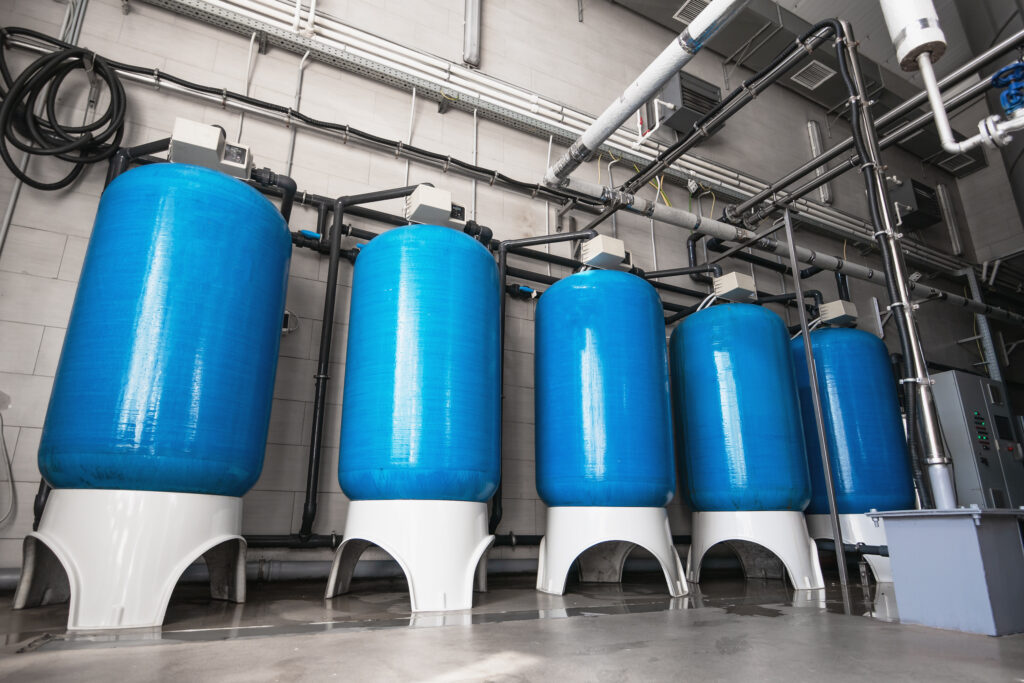
Protection Against Corrosion
Paint Your Metal Tank
If you have a metal tank, and if it’s possible, paint your tank exterior. The paint can act as a barrier between the metal and corrosive elements. However, do not assume that any paint will do. Research your paint and water tank thoroughly before completing this task.
You should avoid painting the inside of the tank, unless using specialist paint, as this will release toxins into the water.
Control the Temperature
High temperatures can cause condensation. This results in moisture, which increases the rate of corrosion. One of the key ways to control the temperature of your tank is to line the tank. For further insights, explore our bund lining services, which outlines how this technique can enhance your tank’s durability and efficiency.
You should keep the tank away from direct sunlight. You can also install a tank liner to help to regulate the internal temperature of the tank.
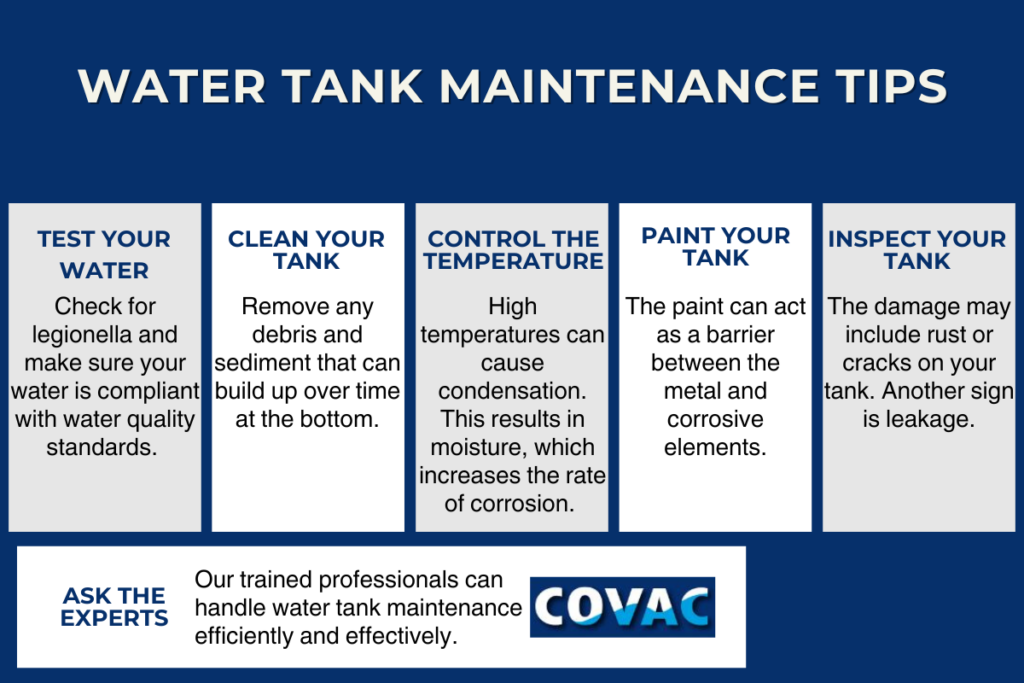
Professional Maintenance Services With COVAC
When it comes to the intricate maintenance needs of water tanks, seeking professional assistance can often be the wisest course of action. This is where COVAC can help.
With over 25 years in the industry, we can offer expertise, experience and specialised tools that ensure your water tank is properly cared for and maintained.
Whether it’s conducting water tank repair, refurbishment or water tank lining, our trained professionals can handle water tank maintenance efficiently and effectively.
Do you need our help? Don’t hesitate to give us a call or fill out our quote form today.
